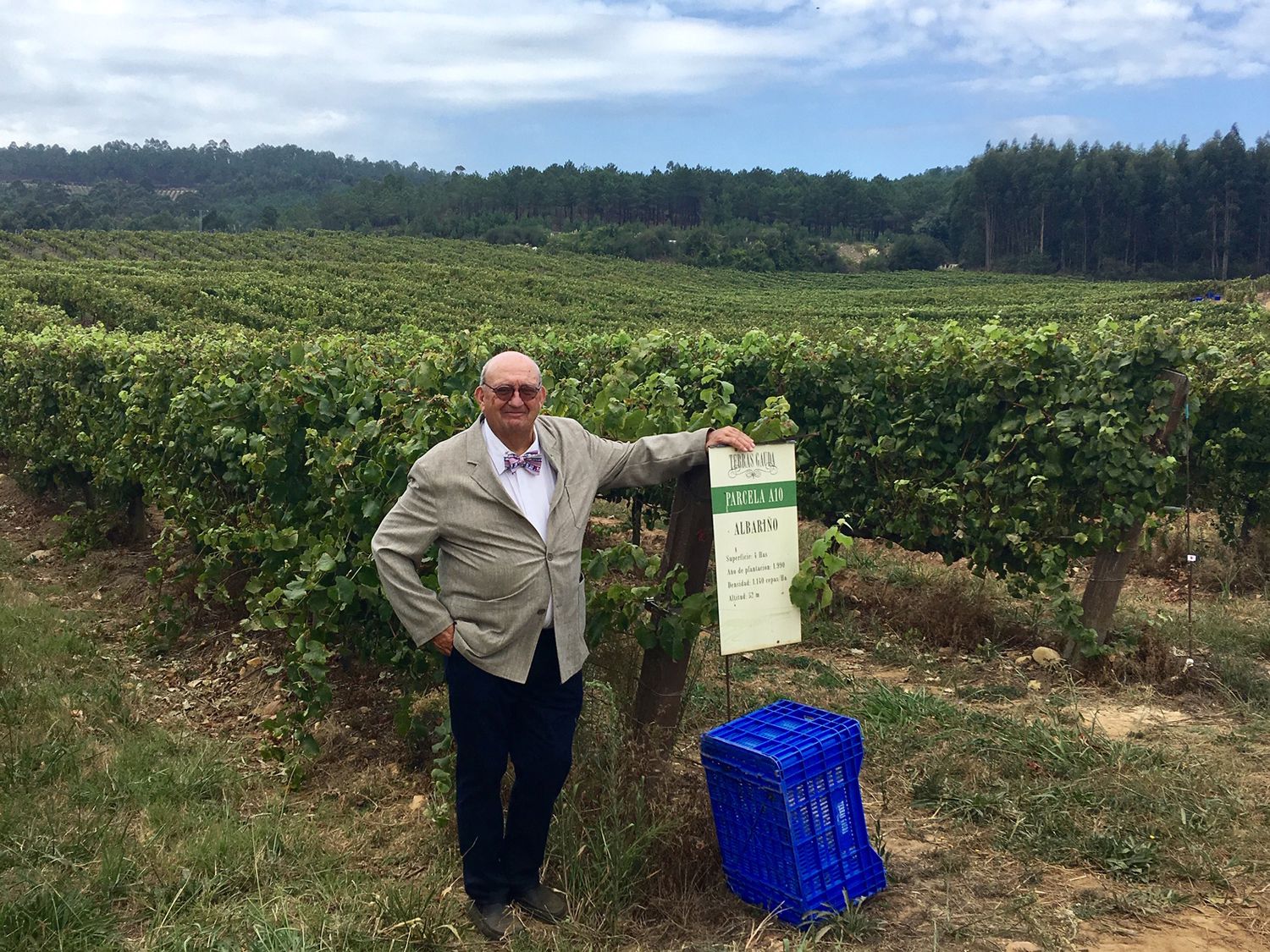The age of the vineyards is a differentiated note to boast of a quality wine, when they exceed forty years after resisting the phylloxera of the late nineteenth century; Other signs are the high altitude of the land and the fluctuations in temperature between day and night in ripening times.
In most cases, the argument most used by wineries to distinguish themselves is found in the strong limitation of production, as in Rioja or Ribera del Duero, with only between 6,000 and 7,000 kilos per hectare, compared to the permissiveness of other denominations dominated by volume.
Terras Gauda, born in the early nineties in the Rías Baixas Designation of Origin, when many of the most important wineries landed in Galician lands, was the first and today the only Galician that started the opposite path until having a presence in Bierzo, with the Pittacun winery ; in Ribera del Duero, with Quinta Sardonia and in Rioja, with Heraclio Alfaro Wines, and billing 18 million euros, of which almost 40% come from abroad, from fifty countries, including the United States.
With its 160 hectares located less than 100 meters above sea level in Galicia, its founder and owner, José María Fonseca, formerly responsible for professional training at the Ministry of Labor in Pontevedra and involved in agricultural programs, discovered the possibilities of the O Rosal vineyards and was clear from the outset what his strategies would be to achieve wines of differentiated quality: innovation and soil treatment.
The initiative was supported by public institutions such as Sodiga, by members of the Fonseca family, including Manuel Fenández Sousa, former president of Pescanova, and by small winegrowers in the area who contributed their vineyards.
It currently has a hundred shareholders, with Abanca assuming the stake in Caixa Galicia, and the Fonseca family as the main minority shareholder.
The winery has registered several patents in collaboration with the CSIC in varietal research, such as the clonal selection of the Albariño or the recovery of the Caiño Blanco grape.
But the most important route of his essays has focused on the search for sustainable alternatives to the use of phytosanitary products and the recovery of the balance in the essential elements of the earth, where the recent agreement with the Argentine biodynamic winery Finca Von Wigstein is framed.
“We believe that the changes in the soil microbiota will be reflected in the microorganisms that we find in the aerial part, fundamentally in the yeast populations and in the bacteria that influence so much winemaking”, says the winery’s oenologist, Emilio Rodriguez.
Terras Gauda participated in the European project Horizon together with Italy, Portugal, France and Greece to search for sustainable alternatives to the use of phytosanitary products in vineyards, taking into account the environmental peculiarities of each area with the use of natural products that act only against the organisms that cause pests.
The Galician winery has also been part of the European Foodie project by which, through precision viticulture, the data provided by satellites are analyzed in real time, allowing fertilizers and treatments to be adjusted to the maximum, something that translates into a saving of 20% in the use of phytosanitary applications and 15% in the use of fertilizers, which at the same time implies a reduction in CO₂ emissions.
Terras Gauda has participated in the last three years in the Vitalver program,Co-financed by the Center for Industrial Technological Development (CDTI) and Rural Development funds, in a circular economy project applied to the vineyard consisting of the conversion of bagasse from the vintage, more than 200,000 kilos, into vermicompost after a process of vermiconversion with earthworms.
The controls carried out on an area of 6.5 hectares concluded that they have had a very beneficial impact on the land, improving its sanitary status and facilitating microbial activity. A greater protection of the plant against different pathogens was also achieved, as well as a reduction in infections, in addition to an increase in quality grape production of between 14% and 20%.
The vinification of the plots where the vermicompost was applied entailed a reduction in malic acid, producing smoother wines, with greater stability, more aromatic and with a greater taste balance.
In line with the policy of comprehensive improvement of the vineyard thanks to the reactivation of microbial biodiversity that is one of the axes of the group’s wine strategy, Terras Gauda signed an R & D & I project in alliance with the Argentine winery Finca Von Wigstein, located at the foot of the Andes, to study the improvement of soil biodiversity.
The objective is focused on analyzing the behavior of this type of strategy in two wineries located in two different hemispheres. The initiative is part of the Eureka community project led by Terras Gauda to promote the competitiveness of companies and has the collaboration of the University of Vigo.



 Bitcoin
Bitcoin  Ethereum
Ethereum  Tether
Tether  XRP
XRP  Solana
Solana  USDC
USDC  TRON
TRON  Cardano
Cardano  Lido Staked Ether
Lido Staked Ether  Avalanche
Avalanche  Toncoin
Toncoin